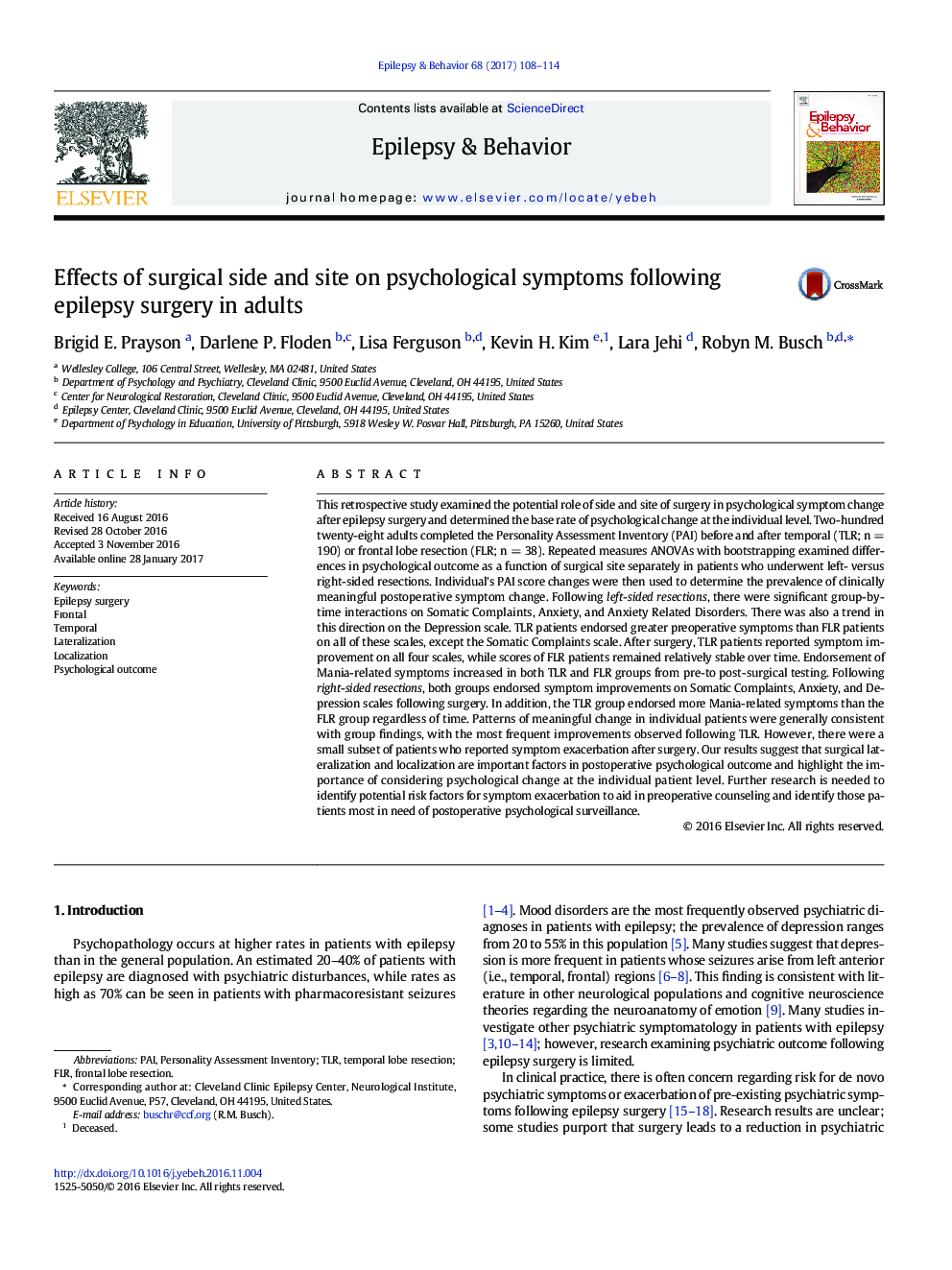| کد مقاله | کد نشریه | سال انتشار | مقاله انگلیسی | نسخه تمام متن |
|---|---|---|---|---|
| 5628045 | 1579824 | 2017 | 7 صفحه PDF | دانلود رایگان |
- Side and site of surgery influence postoperative psychological outcome.
- Preoperative symptoms are higher in left temporal than left frontal lobe epilepsy.
- Psychological symptoms often improve following left temporal resection.
- A small subset of individuals report worsening psychological symptoms after surgery.
- Future research needed to identify risk factors for worsening in mood/anxiety.
This retrospective study examined the potential role of side and site of surgery in psychological symptom change after epilepsy surgery and determined the base rate of psychological change at the individual level. Two-hundred twenty-eight adults completed the Personality Assessment Inventory (PAI) before and after temporal (TLR; n = 190) or frontal lobe resection (FLR; n = 38). Repeated measures ANOVAs with bootstrapping examined differences in psychological outcome as a function of surgical site separately in patients who underwent left- versus right-sided resections. Individual's PAI score changes were then used to determine the prevalence of clinically meaningful postoperative symptom change. Following left-sided resections, there were significant group-by-time interactions on Somatic Complaints, Anxiety, and Anxiety Related Disorders. There was also a trend in this direction on the Depression scale. TLR patients endorsed greater preoperative symptoms than FLR patients on all of these scales, except the Somatic Complaints scale. After surgery, TLR patients reported symptom improvement on all four scales, while scores of FLR patients remained relatively stable over time. Endorsement of Mania-related symptoms increased in both TLR and FLR groups from pre-to post-surgical testing. Following right-sided resections, both groups endorsed symptom improvements on Somatic Complaints, Anxiety, and Depression scales following surgery. In addition, the TLR group endorsed more Mania-related symptoms than the FLR group regardless of time. Patterns of meaningful change in individual patients were generally consistent with group findings, with the most frequent improvements observed following TLR. However, there were a small subset of patients who reported symptom exacerbation after surgery. Our results suggest that surgical lateralization and localization are important factors in postoperative psychological outcome and highlight the importance of considering psychological change at the individual patient level. Further research is needed to identify potential risk factors for symptom exacerbation to aid in preoperative counseling and identify those patients most in need of postoperative psychological surveillance.
Journal: Epilepsy & Behavior - Volume 68, March 2017, Pages 108-114
